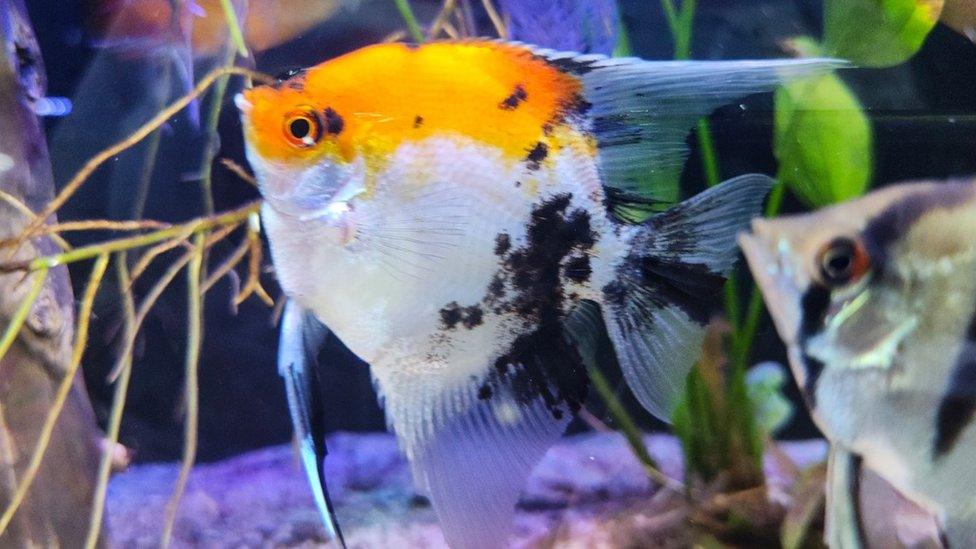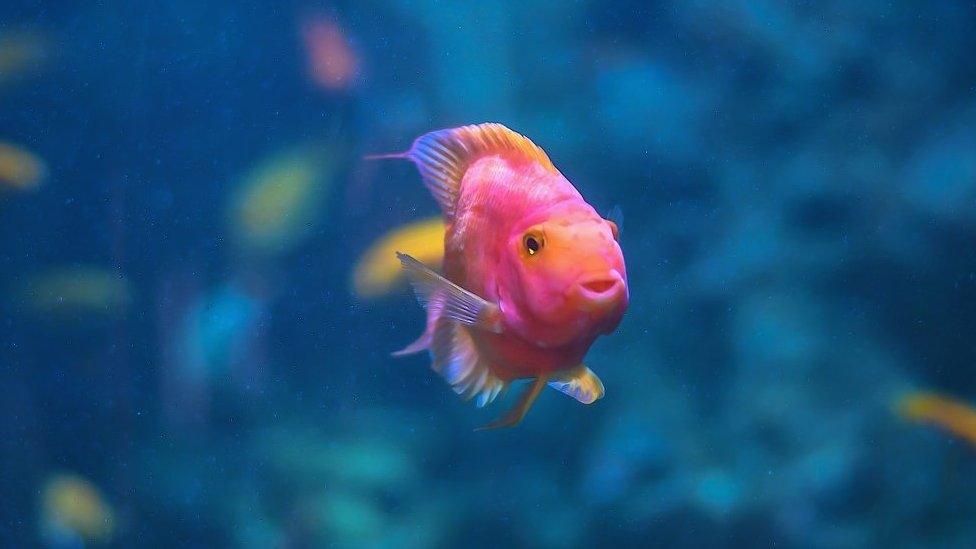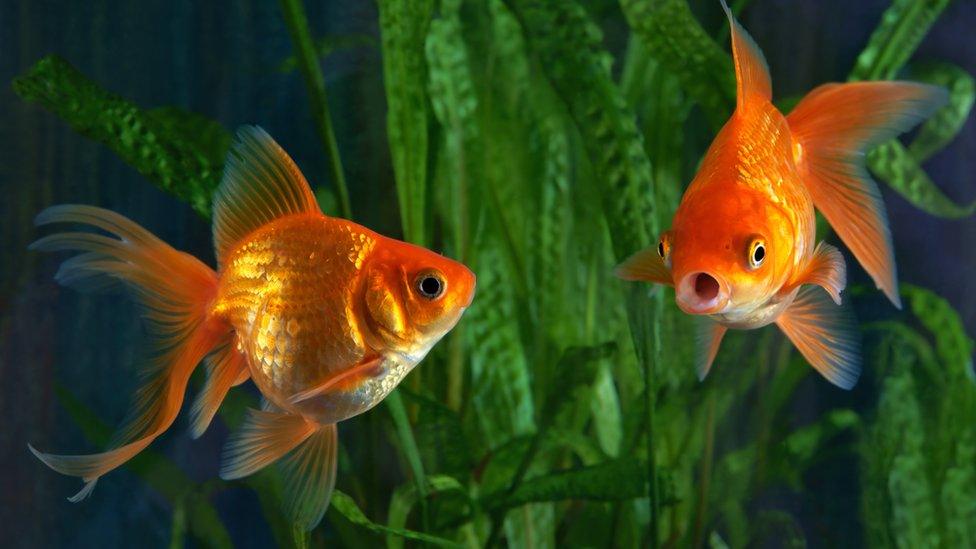Climate change: What's the carbon fin-print of your pet fish?
- Published

Tropical fish are colourful additions to many households
Tropical fish are a colourful addition to many households, but they may not be as innocent as they appear.
They could contribute up to 12.4% of the UK's annual average household CO2 emissions and up to 30% of household water usage.
The findings are part of a new Cardiff University Water Research Institute, external study.
Scientists studied the environmental impacts of factors like the amount of water and energy used for aquariums.
"In the UK, four million households own a pet fish and it's estimated that 70% of those that keep fish have a tropical freshwater aquarium," said research associate Dr William Perry.
"The carbon footprint of owning pets such as dogs and cats has been previously calculated, but we have provided the first estimates of carbon dioxide emissions produced from running a tropical aquarium, as well as estimated water consumption."
In the study, estimates of the environmental impacts of keeping fish across countries - including France, Poland and the UK - were developed.
They looked at typical sizes of aquariums - 50, 200 and 400 litres - and how they are kept running.

How do tropical pet fish affect the environment?
For the UK, a tropical aquarium produces an estimated 85.3 to 635.2kg of CO2 per year - this equates to 1.6% to 12.4% of the UK annual average household emissions.
The research also estimated that tropical aquariums use 156 to 31,200 litres of water per year, equating to 0.2% to 30.1% of the UK annual average household water usage, depending on size and maintenance.
Biggest environmental factors included heating the water, especially in larger aquariums, and the country of origin, due to different levels of decarbonisation in electricity grids in different countries.
"Ornamental fishkeeping can be a more environmentally conscious pet choice than owning an average sized dog or cat, which are likely to produce considerably more emissions through their consumption of meat," added Dr Perry.
"However, the environmental impacts of fishkeeping can also be substantial depending on aquarium size, how it is run and even what country it is in.
"The environmental impact from the energy needs of keeping fish will improve as national energy grids start to decarbonize, but reducing the environmental impact of high water consumption will not come easily and will require ingenuity at the level of the individual."
The research, the environmental impact of keeping a tropical aquarium in Northern Europe, is published in the Journal of Fish Biology, external.
Related topics
- Published27 August 2019

- Published8 July 2022

- Published8 September 2022
